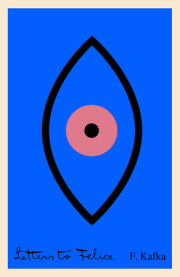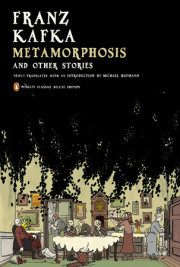1
The true path is along a rope, not a rope suspended way up in the air, but rather only just over the ground. It seems more like a tripwire than a tightrope.
2
All human errors stem from impatience, a premature breaking off of a methodical approach, an ostensible pinning down of an ostensible object.
3
There are two cardinal human vices, from which all the others derive their being: impatience and carelessness. Impatience got people evicted from Paradise; carelessness kept them from making their way back there. Or perhaps there is only one cardinal vice: impatience. Impatience got people evicted, and impatience kept them from making their way back.
4
Many of the shades of the departed busy themselves entirely with lapping at the waters of the Acheron, because it comes from us and still carries the salt tang of our seas. This causes the river to coil with revulsion, and even to reverse its course, and so to wash the dead back to life. They are perfectly happy, and sing choruses of gratitude, and caress the indignant river.
5
From a certain point on, there is no more turning back. That is the point that must be reached.
6
The decisive moment of human development is continually at hand. This is why those movements of revolutionary thought that declare everything preceding to be an irrelevance are correct—because as yet nothing has happened.
7
One of the most effective seductions of Evil is the call to struggle. It’s like the struggle with women, which ends up in bed.
8/9
A smelly bitch that has brought forth plenty of young, already rotting in places, but that to me in my childhood meant everything, who continually follow me faithfully everywhere, whom I am quite incapable of disciplining, but before whom I shrink back, step by step, shying away from her breath, and who will end up—unless I decide otherwise—forcing me into a corner that I can already see, there to decompose fully and utterly on me and with me, until finally—is it a distinction?—the pus- and worm-ravaged flesh of her tongue laps at my hand.
10
A. is terribly puffed up, he considers himself very advanced in goodness, since he feels himself magnetically attracting to himself an ever greater array of temptations, from quarters with which he was previously wholly unacquainted. The true explanation for his condition, however, is that a great devil has taken up residence within him, and an endless stream of smaller devils and deviltons are coming to offer the great one their services.
11/12
The variety of views that one may have, say, of an apple: the view of the small boy who has to crane his neck for a glimpse of the apple on the table, and the view of the master of the house who picks up the apple and hands it to a guest.
13
A first indication of glimmering understanding is the desire to die. This life seems unendurable, another unreachable. One no longer feels ashamed of wanting to die; one petitions to be moved from one’s old cell, which one hates, into a new one, which one will come to hate. A last vestige of belief is involved here, too, for during the move might not the prison governor by chance walk down the passage, see the prisoner, and say: “Don’t lock this man up again. He’s coming with me.”
Copyright © 2015 by Franz Kafka. All rights reserved. No part of this excerpt may be reproduced or reprinted without permission in writing from the publisher.























